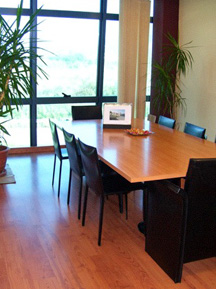
What Is Mediation?
Mediation is becoming recognised as one the most common alternative dispute resolution (ADR) processes when compared to litigation or other alternative methods of resolving disputes. CEDR prefers it to be recognized as an effective dispute resolution tool (EDR) as it is the due to its popularity it is no longer an "alternative system" to the main stream dispute options but on of the main methods adopted.
It's aim is to provide a suitable method of resolving civil disputes that helps the parties to;
- Have a say in how the agreement is reached
- Reduce the "worry time" between initiation and reaching an agreement.
- Reduce the overall cost to each party.
WHO ARE CEDR?
The Centre for Effective Dispute Resolution. A non profit organisation with the aim of promoting and developing mediation and other cost effective ADR methods over commercial and public sector disputes and civil litigation.
They work within the UK sectors with businesses, UK government, and judiciary and internationally also.
CEDR has handled over 10,000 commercial mediations referrals.
A CEDR mediator accreditation is acknowledged as a sound basis for Professional competence.
I HAVE AN ONGOING DISPUTE WITH MY BUILDER HOW CAN MEDIATION HELP?
A mediation process enables the parties to commence or resume dialogue. The Mediator from a position of neutrality and confidentiality can to each party, bring to the table, negotiating, communication, and problem solving skills to help the parties reach an agreement. His value is further strengthened as he has no viable interest in the outcome other than to see a successful agreement between the parties.
 His presence enables the parties to;
His presence enables the parties to;
- Overcome emotional blockages
- Assist communication
- Question their own case realistically
- Explore settlement alternatives
- Assess realistic chances of success
- Overcome deadlock and save face
- Help understand each others case
- Win the trust of the parties
- Focus on the real problems
HOW DOES IT WORK?
- The initial pre- meeting between each party would;
a) Clarify the mediation process- Mediation usually takes an agreed 1-2 days
b) Ensure the parties agree to mediation
c) Agree the terms of the mediation, location, time, cost, documentation, legal framework etc
d) If not already agreed, confirm the mediator
- Summit case details
- Commence a series of "private and confidential" meetings between the mediator and each party. Separately at first with the aim of bringing the parties together as proceedings advance.
- Further joint meetings as the mediator feels appropriate where the parties are in dialogue and are a able to reach a decisions under the guidance and observation of the mediator.
- Parties reach an agreement.
- Mediator confirms the points agreed and draws up the agreement for parties to sign.
IS IT EXPENSIVE?
There are costs involved, however as most cases last between 1 & 2 days and involve only one or 2 mediators, the costs are considered modest when you consider the full legal costs involved in the litigation process where the lawyers, expert witnesses, court costs all have to be met.
IS THE DECISION BINDING?
No the agreement is not binding. But can be reverted to a binding agreement by both parties agreeing to sign a contract.
HOW LONG DOES IT TAKE TO REACH A DECISION?
The commencement dates for mediation are agreed between the parties. As most Mediation cases last between 1 & 2 days the final agreement is normally very quick.
WHAT ARE THE SUCCESS RATES?
Whilst a successful outcome cannot be guaranteed, as this depends on the efforts of each party to work at reaching an agreement, figures have shown a 70% success rate. The figures would be higher if you take into account the number of cases not resolved within the 1 or 2 day slot but within a very short time afterwards reach a final agreement.
WHO DO I CONTACT?
PW as a CEDR credited mediator. He would with the support of the CEDR make the necessary arrangements to have an initial free (confidential) consultation on the viability of your particular case.
Thanks and acknowledgements to the CEDR Mediator handbook.
